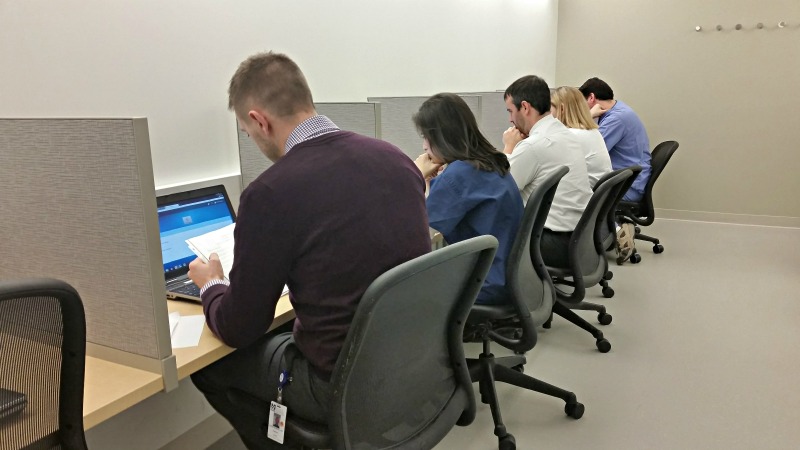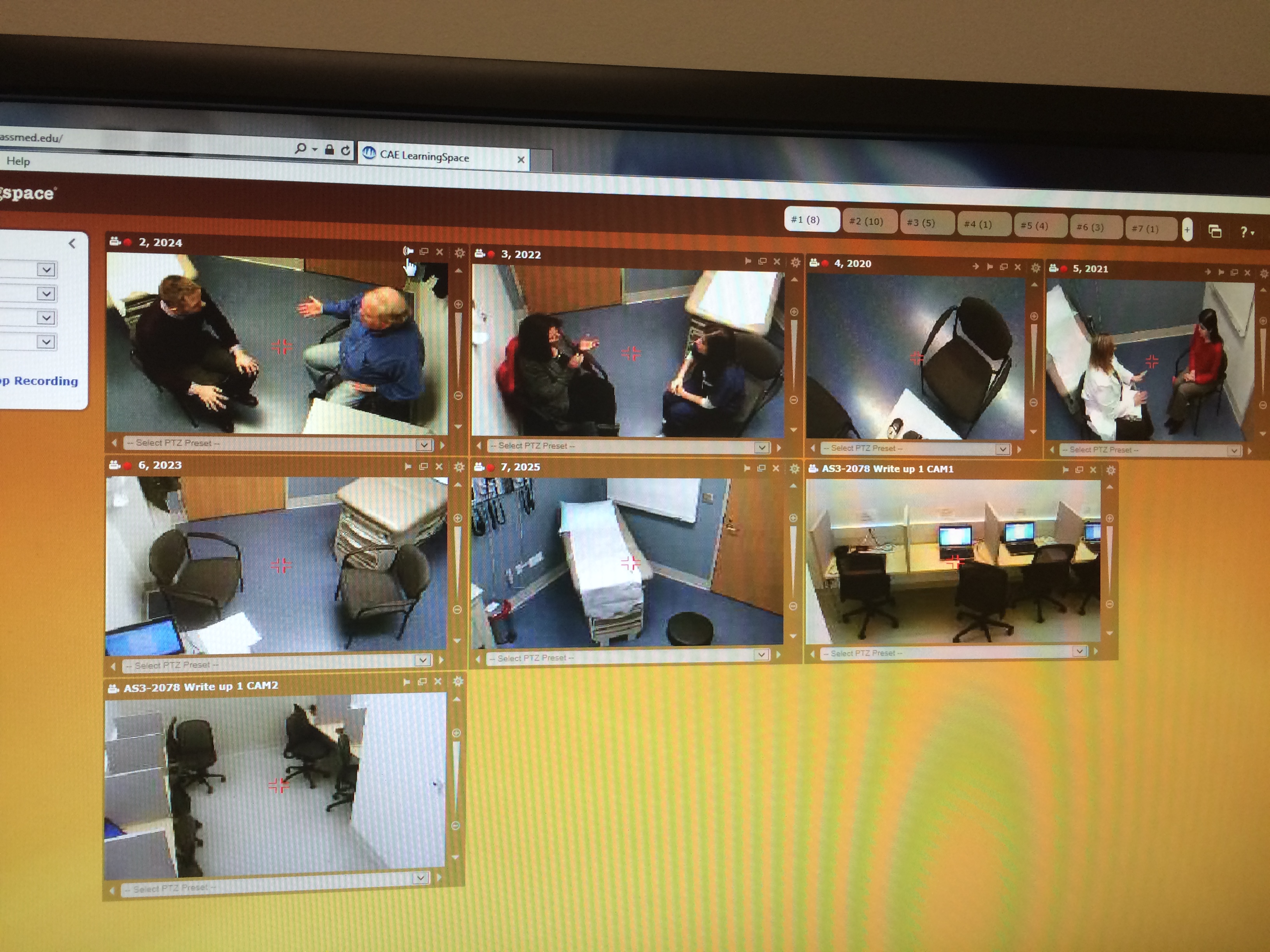Coming Out of the Dark
Teaching Residents Effective Communication Skills through Simulation
Date Posted: miércoles, abril 01, 2015Communication skills have become a core competency for which radiology residents must be evaluated. Thus, a curriculum needed to be developed to not only teach radiology residents effective communication skills, but also to evaluate those skills. Research has shown that training physicians in the communication of abnormal results with patients will result in greater professional satisfaction, decrease stress for the physician, and improve patient compliance. The literature has also shown that giving physicians the opportunity to rehearse actual communication skills required through role play, allowed for self-reflection, in turn improving physician communication skills. Furthermore, it has been shown that the effects of these training programs appear to be long lasting, even 12 months after training.

With these studies in mind, a curriculum for teaching communication skills was developed using simulation by Dr. Joe Makris and I, in conjunction with the interprofessional Center for Experiential Learning and Simulation (iCELS) at UMass Chan Medical School. First year residents will learn communication skills at the beginning of their residency and fourth year residents will cement those skills before they graduate. The residents then participate in the following 6 communication scenarios with trained actors “performing” as patients. All activities will be conducted at iCELS and videotaped using state-of-the art recording and play-back/editing facilities.
6 Communication Simulation Scenarios
- Error and apology
- Breast Imaging Results/Breaking bad news
- Telephone Skills
- Discussing abnormal findings with parents of a pediatric patient
- Talking with patients about the need to change or cancel an image guided procedure
- Explaining the risk of radiation
Residents will fill out a self evaluation after completing each scenario, and will also be evaluated by the acting patient and a faculty evaluator. The residents will be evaluated using the Gap-Kalamazoo Communication Skills Assessment Form. Once the residents have completed the 6 scenarios, a debriefing session takes place. Here, videos of the residents in each of the 6 scenarios are watched and teaching points are identified to help improve their communication skills. The residents then receive a teaching module about effective communication skill and return 2 weeks later to repeat and be evaluated in 6 similar communication scenarios in order to evaluate their improvement. On March 3rd and 24th, we successfully completed the roll-out of this curriculum with our current first and fourth year radiology residents.
Collaboration with Dr. Stephen Brown from Boston Children’s Hospital is also being done. Dr. Brown runs a communication skills workshop called Program to Enhance Relational and Communication Skill (PERCS) and he will help us to validate a new assessment scale based on the Gap-Kalamazoo Communication Skills Assessment Form that would be more tailored to the specific needs of radiology. Dr. Brown, his colleagues, and I will use the videos that are recorded during our simulations here at UMass to validate the tool. Once the new radiology specific assessment tool is validated, we can use it to further improve our curriculum.
I want to thank all the first and fourth year residents, Dr. Makris, Dr. Rosen, Dr. Gauguet, and iCELS for all their help making the roll out of this curriculum a success.





